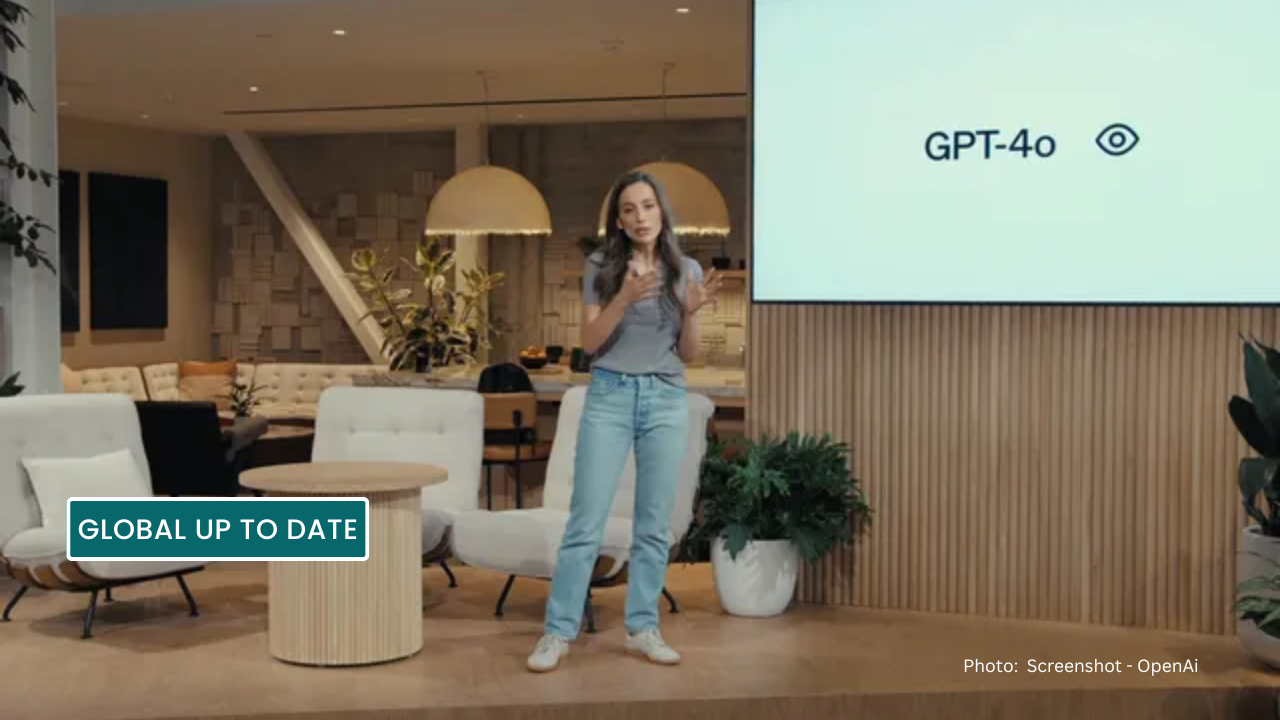GPT-4o, and Then What?
Aong Cha Ching Marma | 22 May 2024
AI world is taking another hit by storm with the launch of the GPT-4o, the latest Chat GPT model by Open AI. In GPT-4o, “o” refers to omni which displays the multimodal capabilities of the new model. Unlike earlier versions, it's capable of handling not only text and images but also video and audio. Open AI’s Chief Technology Officer, Mira Murati, live-streamed the new features of the latest model on May 13. She said that the new model comes with a “much faster” speed along with it semphas is on “ease of use”. Open AI intends to expand the use of its popular chatbot by introducing those new features.
Sam Altman, Greg Brockman, Elon Musk, Ilya Sutskever, Wojciech Zaremba, and John Schulman founded Open AI in December 2015. The founding team formed the company with the goal of developing artificial intelligence for the benefit of humanity by combining their various backgrounds in software engineering, machine learning, and technology entrepreneurship. However, Elon Musk left the company saying that Open AI doesn’t serve the non-profit mission anymore. Sam Altman is the current CEO of Open AI. Many significant capital rounds have been drawn to Open AI, with Microsoft investing $10 billion in January 2023. Open AI was also financed by the company in 2019 and 2021. The firm is now valued at over $80 billion after the last deal took place in January 2024.
Open AI spurred the AI boom with the launch of its artificial Intelligence chatbot, Chat GPT in late 2022. It broke nearly every record in terms of the timeline for gaining active users. Chat GPT crossed 100 million users at a record pace in just 60 days, surpassing TikTok and Instagram. With the advent of this chatbot, it posed a direct threat to Google’s search engine business. The risk became more perceivable when Microsoft started integrating Chat GPT into its various products and its major search engine, Bing. By seeing the initial potential of the Chat GPT, Microsoft’s CEO Satya Nadella said "This new Bing will make Google come out and dance, and I want people to know that we made them dance."
Google officials were taken aback by Open AI's Chat GPT launch and its subsequent success, which caused them to become extremely alarmed and prompted a comprehensive response in the months that followed. Following personnel mobilization, the business introduced Bard in February 2023, which was upgraded to the Gemini LLM in December and featured prominently during the 2023 Google I/O presentation in May. February 2024 saw the unification of Bard and Duet AI under the Gemini brand, along with the release of an Android app.
Chat GPT's release also instigated the release of competing products, including Claude, Llama, Ernie, and Grok. Anthropic’s Claude has now become the major rival of Chat GPT. According to Pitch Book, a record $29.1 billion was committed across roughly 700 generative AI deals in 2023—a rise of more than 260% from the previous year. Within ten years, the market is expected to generate more than $1 trillion in sales. Therefore, the race to capture the AI market is fierce. However, the speed at which untested new services are being introduced to the market has alarmed some in the sector, and researchers and ethicists are alarmed by the technology's propensity to reinforce prejudice.
As the livestreamed event came to an end, Murati expressed gratitude to Nvidia CEO Jensen Huang and his team for supplying the graphics processing units (GPUs) required to run Open AI's technology. Despite the smooth presentation of the GPT4o model, it didn’t end without any controversy. One of GPT4o’s voices named “Sky” was similar to the voice of actress Scarlett Johanson. In response to this issue, Open AI says that it will remove the voice soon and claims it wasn’t an intentional imitation. A few days after the GPT4o presentation, Google showcased a model called “Project Astra” similar to the GPT4o AI assistant, and a video creation model “Veo”.
The quick development of AI technologies promises revolutionary effects across industries, despite the debates and ethical issues. This emphasizes the significance of responsible invention and application. But the question remains “Can the GPT4o like models, and the upcoming models meet the standard of responsible use of AI?”.
The views expressed in these write-up are solely those of the author and do not necessarily reflect the policies of CGS.
Aong Cha Ching Marma is a Research Assistant
